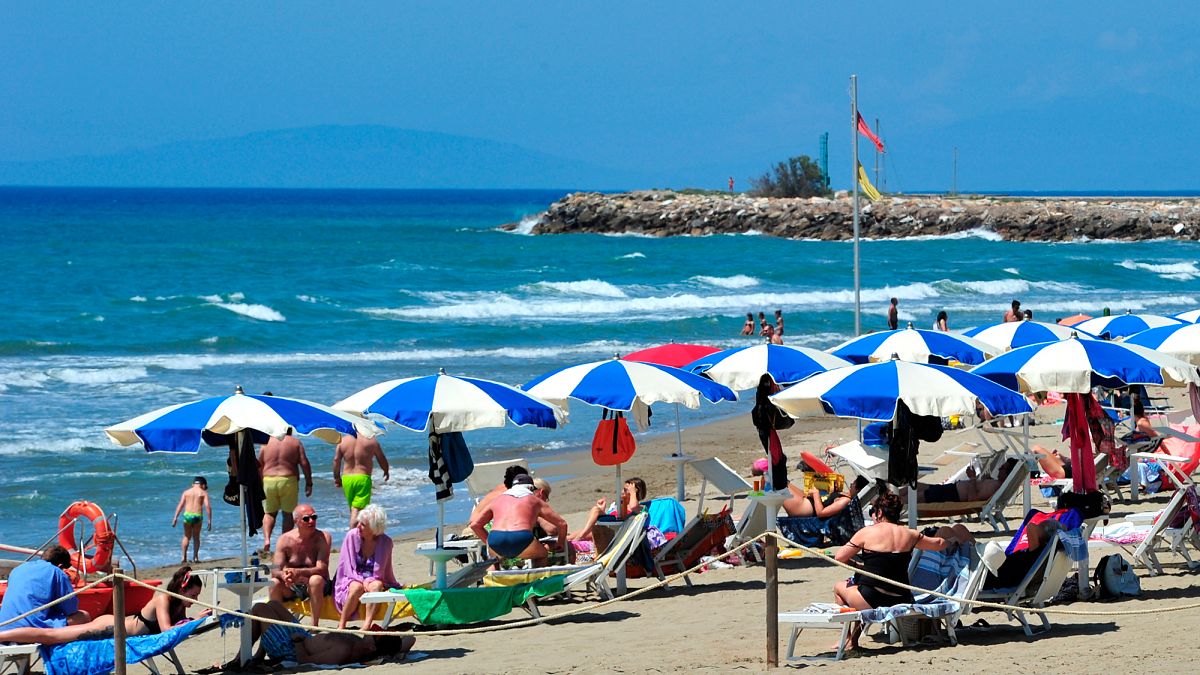In 2023, 15% of employed people in the EU were unable to afford a one-week holiday away from home. While this percentage might not appear very high at first glance, it represents around 42 million workers.
In each of the EU’s “Big Four” economies (Germany, France, Spain and Italy), over 5 million workers were unable to afford a week-long holiday according to Eurostat data published by the European Trade Union Confederation (ETUC).
“Taking a break with family or friends is important for our physical and mental health, and it is a basic part of the European social contract,” said ETUC General Secretary Esther Lynch, criticising the situation.
Holiday poverty among workers continues to rise
Holiday poverty among workers is on the rise across the EU, marking the third consecutive annual increase.
In 2022, 40.5 million employed people reported being unable to afford a one-week holiday away from home. That number rose to 41.5 million in 2023—an increase of over one million workers in just a year. The share of affected workers grew from 14% to 15%.
“The findings are the result of an increasingly unequal economy, in which workers are forced to give up their holidays due to rising costs for accommodation, transport and food, combined with declining purchasing power and speculation”, the ETUC stated.
East-West gap in holiday affordability for workers
The data reveals a strong disparity in holiday affordability across the EU, particularly between Eastern/Southern Europe and Western/Northern Europe.
Romania tops the list, with 32% of workers unable to afford a one-week holiday. Close behind are Hungary (26%), Bulgaria (24%), Portugal and Cyprus (both 23%), and Slovakia (22%).
The Nordic countries—Finland, Sweden and Denmark—along with the Netherlands, Luxembourg, and Slovenia, report the lowest levels of holiday poverty, ranging between 5% and 7%.
Czechia, Austria, and Belgium reported holiday poverty rates at or below 10%.
Despite their economic weight, even the EU’s largest economies report concerning levels of holiday poverty. Among the EU’s Big Four, Spain (18%) and Italy (17%) exceed the EU average of 15%. France (12%) and Germany (11%) fall below the average, but both still remain above 10%.
EU’s Big Four: Over 5 million workers in each country can’t afford a holiday
Absolute figures speak louder than percentages. Over 5 million workers in each of the EU’s Big Four were unable to afford a holiday in 2023. In Italy, the number stood at 6.2 million, followed by 5.8 million in Germany, 5.6 million in Spain, and 5.1 million in France.
Over 3.5 million workers in Romania and Poland also couldn’t afford a holiday. This figure was more than 1.5 million in Hungary and Portugal.
In Austria and the Netherlands, over 550,000 workers couldn’t afford even a one-week holiday despite being employed or having a business.
“After working hard all year, it is the least working people should be able to expect to afford and should not be allowed to become a luxury for the few,” Lynch said.
“However, these figures show that Europe has a quality jobs emergency and that our social contract is continuing to crumble as the result of growing economic inequality.”
Is holiday poverty linked to income?
There is a moderately strong negative correlation between the share of workers who cannot afford a one-week holiday away from home and annual net earnings. This means that as net earnings increase, the proportion of workers unable to afford such a holiday tends to decrease.
However, since the correlation is moderate, it also indicates that in some countries, this relationship is not strong or does not follow the overall trend as closely.
For example, Ireland (€43,897) had one of the highest annual net earnings in the EU in 2023, yet holiday poverty remains comparatively high. In contrast, Slovenia has a low level of holiday poverty among workers, even though the incomes are similar to countries where more people struggle to afford a holiday.
Strong correlation between workers and general population
By comparing workers (aged 15-64) and the general population aged 16 and over, Euronews Business found a strong correlation: the higher the rate of workers who cannot afford a holiday, the higher it tends to be in the overall population.
In 2023, among the general population, the share of people unable to afford a one-week holiday ranged from 11% in Luxembourg to 60% in Romania, while the EU average stood at 29%.
This suggests that the rate among the general population is nearly double that of workers.
Experts speaking to Euronews Business had noted that differences between countries are largely tied to the strength of their economies.
The level of disposable income plays a key role, as it directly affects people’s ability to spend on holidays—particularly when looking at figures for the general population.
The ETUC calls on national governments to fully implement the Minimum Wage Directive and urges the European Commission to ensure that the Quality Job Package due this year includes legislation to rebalance the economy—making respect for collective bargaining a condition for access to public contracts.

